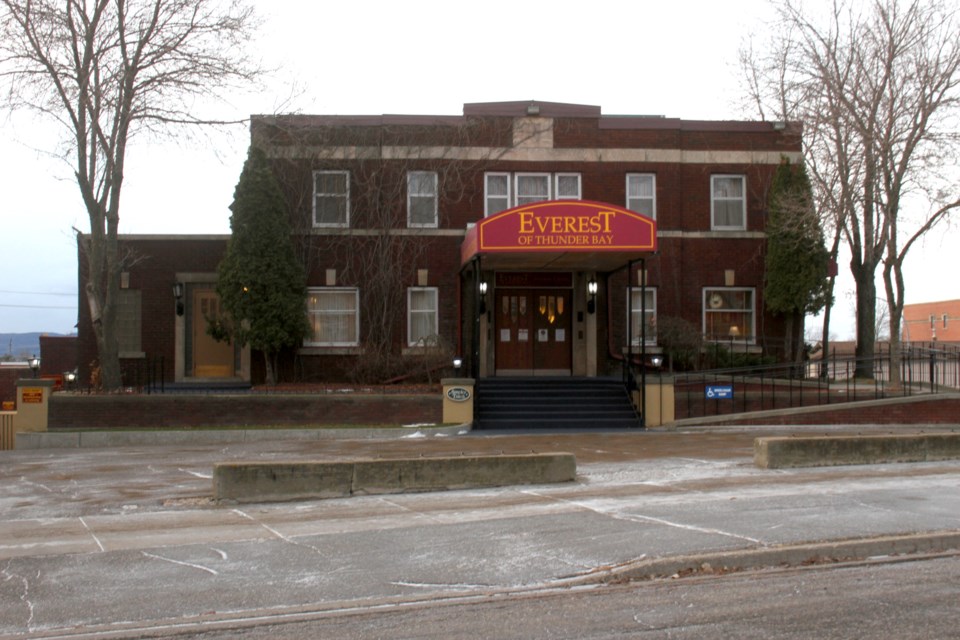THUNDER BAY – Local funeral home directors are incensed as their elevating devices are being shut down with little to no notice by the Technical Standards and Safety Authority, which asserts that the devices are not legal for use and pose a safety risk to staff and visitors.
“We received an email from TSSA asking if we had any lifts in our buildings, and of course we did, each funeral home has one. So I responded we do and this was in January and they follow up with asking us to send photos to them of each lift. So to which we did and then they asked us to have an inspector come and take a look at them,” said Greg Sargent, general manager, Sargent Family Funeral homes, Sargent Chapel, and Blake Funeral Chapel.
“We thought they would come in and look and then give us suggestions on things if we needed to change things," he said. "What did they do instead? Gentleman came in and the first thing he said [was] 'I just have to tell you I’m shutting down both your funeral home’s lifts right now.'”
The TSSA says they raised the issue with funeral homes numerous times before the inspections took place.
"With the assistance of the TSSA, information was sent to all members of the Ontario Association of Cemetery and Funeral Professionals, and the Ontario Funeral Service Association on the requirements for legal elevating devices in April 2019," Campbell said.
"In addition, emails have been sent directly to the owners of the funeral homes well in advance of TSSA visiting locations in person."
The push by the TSSA to have these devices taken out of service came after a 2017 incident in which a funeral home employee died after falling into a shaft for an elevating device.
“A worker at a funeral home went in to do their job that day and they died... because there was an illegal unsafe elevating device in that funeral home,” said TSSA spokesperson Alexandra Campbell.
“That investigation did bring to our attention that unfortunately, there are a number of funeral homes that had similar types of lifting devices, primarily to move caskets around, but workers are interacting with those.”
Most of the elevating devices in funeral homes have been in operation for more than 50 years and are very costly to remove and replace.
“So here I am six months later, my competitor is almost two years later, and we can’t go forward because nothing that TSSA wants to approve is anything short of hundreds of thousands of dollars,” said John-Bryan Gardiner, Everest of Thunder Bay president and managing director.
“I contacted a local contractor that builds platform lifts for industries all over the world and there was a platform lift, a scissor type lift that would have met our needs. Would have been quite costly, but definitely not hundreds of thousands of dollars.”
According to Campbell, the cost is a necessary burden to ensure the safety of people in buildings that are open to the public.
“If you buy something that’s legal and certified and to code and safe, it’s going to be more expensive than something you’re buying that’s not legal, that’s maybe not safe,” Campbell said.
“And if you’ve got someone who is properly trained, has the required certification qualifications to do the work. Sometimes that’s going to cost more money than, you know, finding something that’s illegally installed by someone who’s not legally certified to do that work."
Gardiner says he’s fortunate to be located on a hill, making the basement accessible through the exterior of his building. However, he says the situation is creating a health and safety risk for his employees.
“My staff are forced to carry caskets in the front door. We load them in a vehicle in our garage and go around to the front and carry them up the front steps,” said Gardiner.
“It means I have to make sure I have extra staff on hand just to do that. We hope it’s not raining or snowing as the case may be.”
Sargent's biggest complaint with the shutdowns by the TSSA is an alleged lack of communication and the abruptness of the decision.
“Obviously, I think communication is everything at the end of the day. I think all of our funeral homes want safe equipment for everybody that uses them. That’s not the issue. I think the way they’re going about doing their business is terrible,” said Sargent.
“How do you go into a business and shut them down without giving them any warning so that they can prepare for it and then not give options for corrections to fix their equipment? It’s inexcusable.”
Sargent says that due to the shutdown of his lift at Blake Funeral Home, his stock of caskets was stuck in his basement. The TSSA says they offered to make accommodations for him to retrieve them.
"All businesses were provided information about the options for safe and legal devices before an inspector visited. Business owners have the choice to purchase equipment from their own suppliers and work with contractors of their choice as long as the devices and contractors are authorized in Ontario. TSSA has worked collaboratively with many funeral home owners who have had to upgrade or replace their lifts. TSSA’s role is to ensure the equipment purchased and work done meets the standards," said Campbell.
"At the time of the inspection in Thunder Bay that we believe you are referring to, the inspector did offer to the owner to move any of his caskets to an alternative location, or the inspector could come back another day to remove the tag and seal and permit the owner to move the caskets under the supervision of the inspector. TSSA makes every effort to accommodate circumstances that we know are difficult for business owners while ensuring people remain safe."
